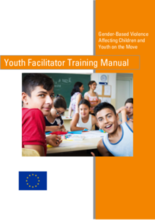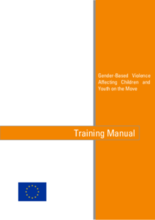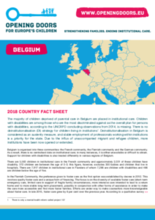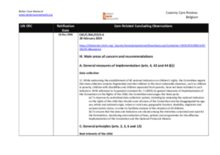Displaying 21 - 30 of 58
In this study, a sample of 97 (out of 505) foster care workers in Flanders (Dutch speaking part of Belgium) from all foster care agencies were asked to answer in writing the question: “What characteristics does a successful foster family have?”
The purpose of this webinar is to shed light on the specific experiences and issues of unaccompanied and separate girls in the European Response.
This video from BBC News tells the stories of mixed-race children in Africa who were separated from their mothers, taken from their countries of origin, and brought to live with "host families" in Belgium during the Belgian colonial period.
This manual provides guidance on how to train up to 60 youth, ages 16-24, from four project countries with the goal of increasing awareness and understanding of gender-based violence (GBV) amongst children and youth on the move.
The focus of this training is on building the knowledge and capacity of care professionals from Greece, Belgium, Malta and Romania to prevent, identify and respond to gender-based violence (GBV) affecting children and youth on the move, including unaccompanied minors.
This conference focuses on the ways social work research and practice can operate in context of changing welfare state paradigms, and in particular how core values of human rights and social justice can be embodied and realised.
The event will bring together Members of the European Parliament, European Commission officials, and civil society from both EU and national level. Its aim is to capitalise on existing EU commitments on the issue of protection of children in migration and will look at how EU policies and the next multi-annual financial framework (MFF) will champion these commitments, ensuring that children in migration and those unaccompanied in particular, grow up in inclusive societies where their rights are respected.
This factsheet highlights the developments and challenges still ahead in Belgium and offers key recommendations to the EU and the national government to ensure that children are cared for in family-based settings.
This country care review includes the care-related Concluding Observations adopted by the Committee on the Rights of Persons with Disabilities and the Committee on the Rights of the Child as part of the Committees' examinations of the initial State reports.
"Belgian authorities have asked for DNA samples of children adopted from the Democratic Republic of Congo to establish if their biological parents are still alive," according to this article from BBC News.




